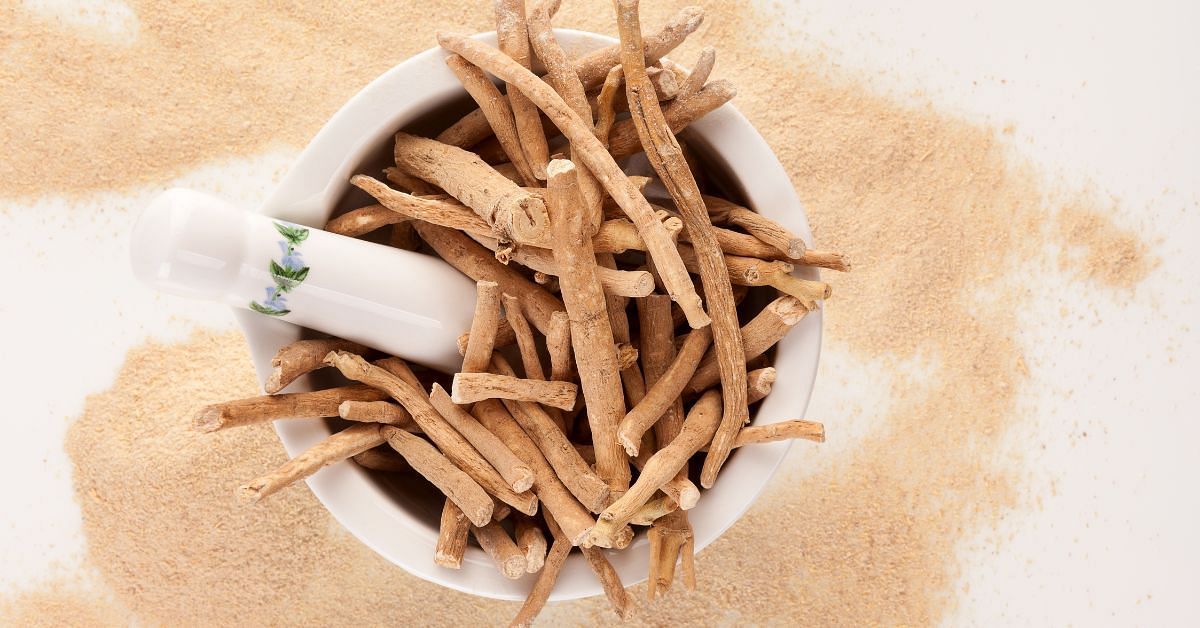Does Ashwagandha Increase Testosterone: What's the Link?
Ashwagandha has long been touted as an essential herb for treating various ailments in men but does ashwagandha increase testosterone? Let's find out!

Ashwagandha, also known as Withania somnifera, is a herb that is commonly used in Ayurvedic medicine in India.
Like many other medicinal herbs, Ashwagandha is frequently promoted as a treatment for almost any common ailment, from stress reduction to cholesterol reduction.
While the scientific evidence for some of its alleged benefits is mixed, there is some evidence that ashwagandha may help to increase testosterone levels in men, with a few studies specifically looking at its effects as a testosterone supplement.
We've looked into the science of ashwagandha and testosterone to see if it works and, if so, how you can use it to boost testosterone and maintain healthy, optimal testosterone levels as a man.
Does Ashwagandha Increase Testosterone?
Short answer: Yes, Ashwagandha is perhaps best known as a natural testosterone booster. A few studies have specifically looked at this effect and discovered that ashwagandha might have real benefits for men suffering from testosterone deficiency.
Before we get into the science of ashwagandha and testosterone, a few things should be clarified.
To begin with, the number of studies on ashwagandha and testosterone is limited. There are only a few credible studies available in total.
According to research, there is a link between ashwagandha and testosterone.
Let us start with the first study. This study, which was published in 2010, included 150 men in total. Seventy-five of these men were healthy and fertile, while the other 75 were undergoing infertility screening.
The study aimed to look into the effects of ashwagandha root on sperm profile, testosterone, and other reproductive hormones in infertile men.
The researchers discovered that ashwagandha treatment improved testosterone, luteinizing hormone, follicle-stimulating hormone, and prolactin levels in infertile men — all of which are important factors in sperm quality and male fertility.
In a separate 2015 study, researchers investigated the effects of ashwagandha root extract on muscle mass, strength, and testosterone in men aged 18 to fifty.
In the study, 57 men with no prior weight training experience were divided into two groups, with only one receiving ashwagandha. Both groups engaged in eight weeks of resistance training, with muscle size, strength, and testosterone levels measured before and after.
After eight weeks, the ashwagandha supplement group demonstrated a greater increase in strength when performing bench press and leg extensions. They also gained more muscle mass in the chest and arms.
Most notably, the ashwagandha group had a significantly higher average increase in testosterone levels, with an increase of 96.2 ng/dL versus 18.0 ng/dL in the placebo group.
Over the course of the study, the ashwagandha group also had a greater reduction in body fat percentage.
To put these findings in context, the normal testosterone range in men aged 19 to 39 is 264 ng/dL to 916 ng/dL, making the increase from ashwagandha quite significant.
Finally, a 2019 study examined the effects of ashwagandha on several hormones in overweight men, including testosterone.
The men in the study were given either ashwagandha extract or a non-therapeutic placebo for 16 weeks. At the conclusion of the study, the men who used ashwagandha had a 14.7% higher increase in testosterone than the men in the placebo group.
As a result, some studies clearly show a link between ashwagandha and increased testosterone levels in men.
Potential Side Effects of Ashwagandha
In general, ashwagandha is safe to use. However, if you use other medications or have pre-existing health issues, you should consult your doctor before starting any new supplements, including ashwagandha.
This is because ashwagandha may interact with medications used to treat high or low blood pressure, diabetes, anxiety, autoimmune disorders, and certain thyroid conditions.
As a result, it's critical to consult with your doctor before using ashwagandha, especially if you're taking medication or have a pre-existing health condition.
Over to You
While research on many of ashwagandha's health benefits is mixed, there is some evidence that it can increase testosterone, with several studies showing a significant increase in men who used ashwagandha supplements.
Ashwagandha also appears to help with physical fitness, with one study observing an increase in strength and muscle mass.
Because ashwagandha is available without a prescription, it may be worth considering if you want to boost your testosterone levels and improve your physical fitness.
References
Sachin Wankhede, 2015; Examining the effect of Withania somnifera supplementation on muscle strength and recovery: a randomized controlled trial - https://pubmed.ncbi.nlm.nih.gov/26609282/
Adrian L. Lopresti, March 2015; A Randomized, Double-Blind, Placebo-Controlled, Crossover Study Examining the Hormonal and Vitality Effects of Ashwagandha (Withania somnifera) in Aging, Overweight Males - https://www.ncbi.nlm.nih.gov/pmc/articles/PMC6438434/

